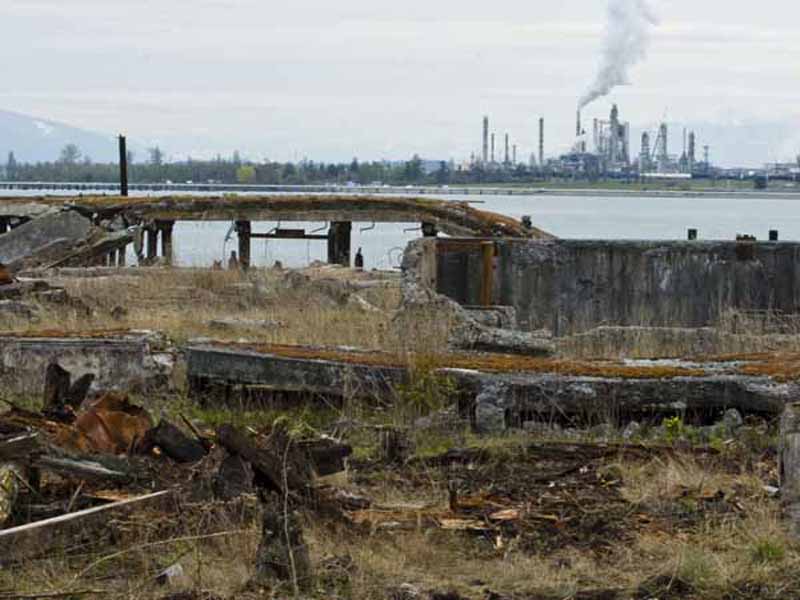AAFP Joins U.S. Call to Action on Climate Change
July 02, 2019 12:08 pm Michael Devitt – What does the AAFP have in common with the American Association of Community Psychiatrists, the Florida State Medical Association and the Multnomah County Health Department?
If you guessed that they're all concerned about the effects of climate change on health -- congratulations, you nailed it!
The Academy has joined more than 70 local, state and national health organizations in signing on to the U.S. Call to Action on Climate, Health and Equity: A Policy Action Agenda, which recognizes climate change as a public health emergency and urges civic leaders, business leaders, government officials and other stakeholders to work together to find solutions.
Agenda Outlines Plan of Action
The call to action document features 10 policy recommendations that government leaders can use to address climate change. The first seven policies directly benefit human health; the remaining three address how the health sector can participate by reducing its own carbon footprint and building resilience against climate impacts.
Story Highlights
The AAFP has joined more than 70 organizations in signing on to the U.S. Call to Action on Climate, Health and Equity: A Policy Action Agenda.
The document features 10 policy recommendations that government leaders can use to address climate change.
In addition to warning of significant risks to public health if action is not taken, the call to action also recognizes potential opportunities that can be leveraged if the proper policies are implemented.
Those recommendations are:
- Meet and strengthen the commitments the United States made under the Paris Climate Agreement.
- Rapidly transition away from the use of coal, oil and natural gas to nonpolluting, safe and renewable energy sources and energy efficiency.
- Emphasize active (e.g., walking, bicycling), rather than passive (e.g., driving), transportation modes during the transition to nonpolluting, zero-carbon transportation systems.
- Promote healthy, sustainable and resilient farms and food systems, forests and natural lands.
- Ensure that all U.S. residents have access to safe, affordable drinking water and a sustainable water supply.
- Invest in policies that support a just transition for workers and communities adversely impacted by climate change and the transition to a low-carbon economy.
- Engage the health sector's voice in the call for climate action.
- Incorporate climate change solutions into all health care and public health systems.
- Build resilient communities in the face of climate change.
- Invest in climate and health.
"Climate change is one of the greatest threats to health America has ever faced -- it is a true public health emergency," the call to action declares. Yet even so, the document continues, there are potential opportunities that can be leveraged by implementing the proper policies.
"Building healthy energy, transportation, land use and agriculture systems now will deliver immediate and sustained health benefits to all and reduce future health risks from climate change," it states.
The groups have also released an accompanying one-page summary that succinctly details the agenda's purpose.
"We call on our nation's leaders to act now by mobilizing climate actions for our health and health actions for our climate. With the right policies and investments today, we have the opportunity to realize our vision of healthy people in healthy places on a healthy planet," the summary concludes.
FP Expert Urges Colleagues to Get Involved
Addressing climate change may seem daunting to most family physicians, but not Mona Sarfaty, M.D., M.P.H., of Chevy Chase, Md. Sarfaty is director of the Medical Society Consortium on Climate & Health, which the AAFP helped found in 2016. She also currently serves as secretary of the Academy's Climate Change and Environmental Health Member Interest Group, which launched in March.
Sarfaty told AAFP News that in her role with the consortium, she was asked to comment on an earlier document dubbed the Global Call to Action, which was presented to the World Health Organization last November. A working group composed of experts from consortium societies and affiliates adapted that document to develop a policy agenda specifically for the United States, and the U.S. call to action document resulted from that effort.
According to Sarfaty, many family physicians may already be seeing the effects of climate change in their practices without realizing it.
"Given the profound impact on health already occurring in many parts of the U.S. due to extreme heat, fires, floods, storms, pollen seasons, and spreading mosquito and tickborne infections, many family physicians are already on the front lines of climate change," Sarfaty said. "We must let patients know how they can protect themselves and let policymakers at the state and national level know that solutions are beneficial for health."
Sarfaty added that she sees more potential for family physicians and other interested parties to get involved in tackling climate change at the state level.
"State AFP chapters can let policymakers in their state know that our plan is a good one and they should get it done in order to protect and benefit health," she said. "Protecting the next generation and the generations after that is also in our interest."
